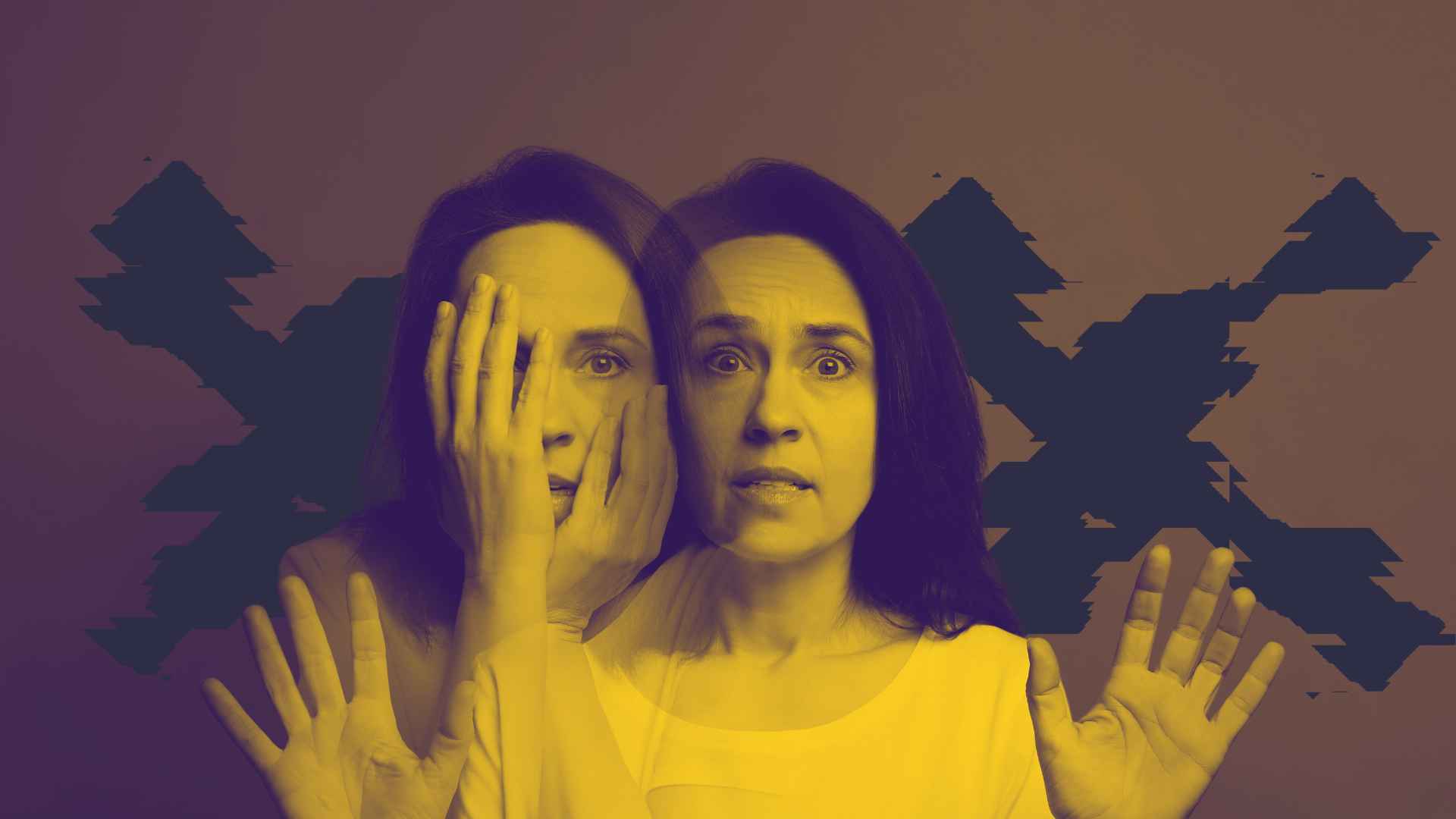Imagine a parent struggling to balance their mental health while maintaining a stable environment for their child. Between mood swings and energy shifts, life feels like a constant uphill battle. For those managing bipolar disorder, this isn’t fiction—it’s daily life. Yet, in the digital age, technology is providing innovative tools to make this journey easier, smarter, and more effective.
With solutions like smart monitoring, online counseling, and AI-driven diagnostics, the landscape of bipolar treatment is rapidly evolving. Let’s explore how these advancements are empowering individuals and shaping the future of mental health care.
The Evolution of Bipolar Treatment
From Notecards to Smartphones
The treatment of bipolar disorder has come a long way since the pioneering work of Emil Kraepelin in the early 20th century. Kraepelin meticulously documented patient behaviors and symptoms on notecards, identifying patterns that formed the foundation of modern bipolar disorder diagnosis. Fast forward to today, we live in a digital age where smartphones and wearable devices can collect over one million data points daily, providing unparalleled insights into mental health. However, this leap in technology raises a critical question: Are we fully harnessing these tools for effective bipolar treatment?
Challenges in Traditional Care
1. Limited Long-Term Data Collection
Historically, long-term monitoring of bipolar disorder has been rare due to resource limitations. Traditional treatment relies heavily on patient self-reporting, which can be inconsistent or inaccurate. Longitudinal studies, though essential, are often underfunded and short in duration.
2. Resistance to Invasive Tools
Many patients are reluctant to use invasive monitoring systems like sensors or custom wearables. A study on actigraphy—a non-invasive monitoring method—found that 50% of participants discontinued use within a few weeks, citing discomfort or inconvenience.
3. Stigma and Privacy Concerns
Mental health stigma continues to deter individuals from adopting digital tools. Additionally, privacy concerns over data collected by apps and devices further discourage widespread use. According to a survey by the American Psychological Association, 60% of respondents expressed fears about how their health data might be used.
The Role of Technology in Addressing Challenges
Advancements in Digital Bipolar Management
Digital tools are bridging gaps in traditional care, offering solutions to overcome these challenges. From AI diagnosis to virtual care, technology is not only increasing access to treatment but also improving accuracy and personalization.
Smart Monitoring for Seamless Data Collection
Smart monitoring devices like wearable trackers and smartphone applications enable continuous, non-intrusive data collection. These tools monitor:
- Sleep patterns
- Physical activity
- Mood fluctuations
For instance, Apple Watch provides sleep tracking and activity analytics, helping individuals and healthcare providers recognize triggers for manic or depressive episodes.
Empowering Patients with Online Counseling
Online counseling platforms such as BetterHelp and Talkspace address stigma by allowing users to access therapy from the privacy of their homes. These platforms offer flexibility, affordability, and confidentiality, making mental health care more inclusive. Statistics reveal that 70% of online therapy users experience significant improvements in managing their symptoms.
AI-Driven Insights for Diagnosis and Treatment
Artificial intelligence is revolutionizing bipolar management by analyzing patterns in speech, activity, and behavior to predict mood shifts. Tools like Woebot provide real-time cognitive behavioral therapy, reducing the burden on healthcare systems while offering patients timely interventions.
Benefits of Digital Solutions
1. Non-Invasive Monitoring
Modern devices are designed for comfort and ease of use, making long-term monitoring less intrusive. For example, fitness trackers seamlessly integrate into daily life, providing actionable insights without disrupting routines.
2. Enhanced Data Accuracy
Unlike traditional methods reliant on patient recall, digital tools capture real-time data, reducing the likelihood of errors. A study in the Journal of Affective Disorders found that digital monitoring increased diagnostic accuracy by 40%.
3. Improved Accessibility
Virtual care services eliminate geographical barriers, ensuring individuals in remote or underserved areas have access to specialists. Platforms like Amwell and MDLIVE are leading the way in telemedicine, connecting patients with mental health professionals.
Ethical Considerations in Digital Bipolar Treatment
Addressing Privacy Concerns
The widespread adoption of digital tools depends on robust data security measures. Ensuring patient confidentiality requires:
- Transparent data usage policies
- Encryption of sensitive information
- Regular audits of digital platforms
Reducing Stigma Through Awareness
Educational campaigns can help demystify digital mental health tools, encouraging more individuals to explore bipolar treatment options without fear of judgment.
Statistical Insight: A Promising Future
The integration of digital tools into bipolar disorder care has shown promising outcomes:
- 85% of telehealth users report improved satisfaction with treatment accessibility.
- AI-powered diagnostic tools achieve an accuracy rate of up to 80% in detecting mood episodes.
- 50% of patients using wearable devices report better adherence to treatment plans.
The evolution of bipolar disorder care from Kraepelin’s notecards to advanced digital tools represents a significant leap forward in understanding and managing this complex condition. However, while technology has made strides in data collection and treatment personalization, its full potential remains untapped. By addressing challenges such as stigma, privacy concerns, and resistance to invasive tools, we can ensure that digital solutions become a cornerstone of effective bipolar treatment.
As we navigate the future of mental health care, it’s crucial to balance technological advancements with ethical considerations, ensuring that every innovation serves the ultimate goal: improving lives.
10 Remarkable Tools for Bipolar Treatment in the Digital Age
In the ever-evolving world of mental health care, technology is reshaping how we approach bipolar treatment. From wearable devices to AI-driven diagnostics, the digital age offers a new realm of possibilities to enhance bipolar management. According to the World Health Organization (WHO), over 40 million people globally live with bipolar disorder, with many lacking access to proper care. Digital tools are breaking barriers, enabling individuals to manage their condition more effectively and conveniently.
1. Smart Monitoring Devices: Wearable Insights for Bipolar Management
Wearable devices such as smartwatches and fitness trackers are revolutionizing how we monitor mental health. These tools collect real-time data on:
- Sleep patterns: Bipolar disorder often disrupts sleep cycles, a key marker for manic or depressive episodes.
- Physical activity: Tracking daily movements can highlight periods of lethargy or hyperactivity.
- Heart rate variability: Stress levels can be identified through subtle changes in heart rhythms.
Example Tools:
- Fitbit and Apple Watch: Provide detailed insights into sleep and activity trends.
- WHOOP Strap: Offers in-depth health analytics tailored to stress and recovery.
Impact:
Studies show that monitoring sleep with wearables can predict manic episodes with 78% accuracy, enabling timely intervention.
2. Online Counseling Platforms: Accessible Therapy for Everyone
Online counseling has made mental health care more accessible than ever. Virtual therapy platforms eliminate geographical barriers, making it easier for individuals in rural or underserved areas to receive support.
Popular Platforms:
- BetterHelp: Offers personalized therapy sessions via video or chat.
- Talkspace: Matches users with licensed therapists based on their needs.
- Regain: Focuses on therapy for couples navigating bipolar-related challenges.
Benefits:
- Affordable alternatives to traditional therapy
- Flexible scheduling for individuals with busy routines
- Anonymous communication, reducing stigma
Statistics reveal that 70% of individuals using online therapy report significant improvements in managing their bipolar symptoms.
3. AI-Powered Diagnosis: Precision in Mental Health
Artificial Intelligence (AI) is a game-changer in bipolar treatment. By analyzing large datasets, AI tools can detect subtle patterns linked to mood disorders.
Key Features:
- Speech pattern analysis: Detects emotional tone and pace changes indicative of mania or depression.
- Behavioral data interpretation: Monitors social activity and communication for warning signs.
- Sleep and activity tracking: Offers insights into potential triggers.
Examples of AI Tools:
- Woebot: An AI-driven chatbot providing cognitive behavioral therapy (CBT) guidance.
- Moodpath: Uses AI to assess symptoms and provide resources for management.
Impact:
AI tools have achieved up to 80% accuracy in predicting manic episodes, reducing the time to diagnosis and intervention.
4. Virtual Reality (VR) for Therapy
Virtual care is extending beyond video consultations to immersive experiences like Virtual Reality (VR) therapy. VR helps individuals navigate anxiety, depression, and social skills training in a controlled environment.
Applications:
- Role-playing scenarios to prepare for real-world interactions
- Simulated environments to reduce phobias or stress
- Guided mindfulness exercises
Example Tools:
- Psious: A VR platform designed for mental health professionals.
- BehaVR: Offers stress-reduction and emotional regulation programs.
Research Insight:
A recent study found that 87% of participants using VR therapy for mood disorders reported reduced anxiety and improved emotional regulation.
5. Mood-Tracking Apps: Daily Logs for Better Management
Mood-tracking apps empower users to monitor their emotional well-being consistently. These apps record patterns that might signal upcoming episodes.
Notable Apps:
- Daylio: Combines mood journaling with activity tracking.
- eMoods: Designed specifically for bipolar disorder, enabling users to log mood swings, medications, and sleep patterns.
Benefits:
- Easy-to-use interfaces for daily tracking
- Graphical insights into mood trends over time
- Integration with therapists for shared progress monitoring
Did You Know?
More than 60% of app users report greater awareness of mood triggers within three months.
6. Telemedicine Services: Connecting Patients to Specialists
Telemedicine bridges the gap between individuals and mental health professionals. Especially for those managing bipolar disorder, telehealth ensures access to specialists without the need for travel.
Advantages:
- Immediate access during crises
- Flexible appointments for medication adjustments
- Secure platforms maintaining confidentiality
Leading Providers:
- Amwell: Offers on-demand consultations with psychiatrists.
- MDLIVE: Focuses on mental health and medication management.
A survey found that 85% of telemedicine users appreciate the convenience and continuity it offers.
7. Digital Cognitive Behavioral Therapy (CBT): Self-Guided Mental Health Care
CBT is a cornerstone of bipolar treatment, and digital versions make it more accessible. Online CBT programs help individuals challenge negative thought patterns and develop healthier coping mechanisms.
Features of Digital CBT Tools:
- Interactive modules tailored to user needs
- Homework assignments for daily practice
- Progress tracking for self-assessment
Examples:
- iCBT by SilverCloud: Offers structured programs for mood disorders.
- CBT-i Coach: Focuses on sleep improvements for bipolar patients.
Research shows that digital CBT can be as effective as in-person therapy, with 75% of users reporting reduced symptoms.
8. Medication Management Apps
Consistency in medication is crucial for bipolar management, and digital tools are making it easier to stay on track.
App Features:
- Automated reminders for medication schedules
- Interaction warnings to prevent adverse effects
- Progress logs for tracking side effects and improvements
Popular Apps:
- MyTherapy: Tracks medications, symptoms, and overall health.
- Pill Reminder: Ensures timely doses with simple alerts.
Fact:
Adherence to medication improves by 60% when users rely on reminders and tracking apps.
9. Peer Support Communities: Online Groups for Shared Experiences
Digital platforms connect individuals living with bipolar disorder, offering a sense of belonging and mutual support.
Key Platforms:
- 7 Cups: Provides peer listeners and supportive forums.
- Reddit’s Bipolar Disorder Community: An active space for sharing tips and experiences.
Benefits of Online Support:
- Anonymity reduces stigma-related barriers.
- Peer advice complements professional care.
- Empathy from shared experiences enhances motivation.
Statistics indicate that individuals involved in support groups are 45% more likely to adhere to treatment plans.
10. Data Analytics for Personalized Care
Advanced data analytics tools are transforming how mental health data is interpreted. By synthesizing data from various sources like wearables, apps, and therapy sessions, healthcare providers can offer personalized treatment plans.
Applications:
- Identifying high-risk periods for manic or depressive episodes
- Tailoring medication dosages based on activity patterns
- Enhancing the precision of therapy sessions
Example Tools:
- Tiatros: Leverages data for comprehensive mental health insights.
- ThriveTracker: Uses analytics to improve patient outcomes.
These tools have improved treatment accuracy by 30-40%, providing more effective care.
The digital age has ushered in a wave of innovations that are transforming bipolar treatment. From smart monitoring to virtual care, these tools are providing accessible, personalized, and effective solutions for those managing bipolar disorder. However, the journey doesn’t end with technology; collaboration between patients, caregivers, and mental health professionals remains essential for success.
Why Digital Tools Are Transforming Bipolar Management
The integration of technology into mental health care has revolutionized how we approach bipolar management. From offering greater accessibility to providing real-time feedback, digital tools have significantly enhanced the effectiveness of bipolar treatment. Let’s explore why these advancements are game-changing for individuals living with this condition.
Increased Access and Adherence
The World Health Organization (WHO) estimates that nearly 50% of individuals with bipolar disorder do not have access to proper care. Digital tools are helping bridge this gap by reducing geographical, financial, and social barriers to treatment.
Key Contributions:
- Eliminating distance challenges: Patients in rural or underserved areas can now connect with therapists and psychiatrists through telemedicine and online counseling platforms.
- Convenience: Flexible scheduling options help individuals balance treatment with their daily responsibilities.
- Anonymity: Digital solutions encourage those hesitant about in-person therapy to seek help without fear of stigma.
Statistics:
- Studies show that individuals using telemedicine are 70% more likely to adhere to treatment plans compared to those relying on in-person visits alone.
- Online counseling platforms like BetterHelp and Talkspace have seen a 50% increase in usage since 2020, reflecting a growing demand for accessible care.
By breaking down these barriers, digital tools ensure that more people receive timely interventions, improving their quality of life.
Real-Time Feedback
Unlike traditional mental health care, which often involves periodic check-ins, digital tools offer immediate insights into a patient’s mental state. This real-time feedback allows individuals to make proactive adjustments to their routines, medications, or therapy approaches.
How It Works:
- Wearables: Devices like smartwatches provide continuous data on sleep patterns, heart rate, and activity levels, which are critical indicators of mood stability.
- Mood-Tracking Apps: Tools such as eMoods or Daylio let users log their emotions daily, identifying patterns that may signal upcoming manic or depressive episodes.
- AI-Powered Monitoring: AI tools analyze behavioral and speech patterns, providing early warnings for mood shifts.
Advantages:
- Personalized care: Data-driven insights allow therapists to tailor treatment plans based on a patient’s unique needs.
- Crisis prevention: Identifying potential triggers helps individuals avoid full-blown episodes.
- Enhanced self-awareness: Patients gain a clearer understanding of their mental health, empowering them to take charge of their well-being.
Example:
A study in the Journal of Medical Internet Research found that individuals using mood-tracking apps reduced their manic episodes by 25% within six months, thanks to real-time monitoring and feedback.
Empowering Patients Through Self-Management
Digital tools encourage individuals to actively participate in their own bipolar management, fostering independence and resilience.
Key Features:
- Interactive Programs: Platforms like SilverCloud and Woebot offer cognitive-behavioral therapy (CBT) modules that guide users through coping techniques.
- Medication Reminders: Apps like MyTherapy ensure consistent adherence to prescribed medications, a cornerstone of effective bipolar treatment.
- Peer Support Communities: Online forums provide a space for sharing experiences, reducing feelings of isolation.
Impact:
Research shows that self-management strategies can lead to a 20% improvement in mood stability and a reduction in hospitalization rates.
Ethical Considerations and Privacy
As we embrace digital tools, it’s crucial to address concerns related to data security and patient privacy. Given the sensitive nature of mental health information, safeguarding this data is essential for building trust in virtual care.
Challenges:
- Ensuring compliance with regulations like GDPR and HIPAA
- Providing transparency about how patient data is used
- Offering options for users to control their own information
Solutions:
- Platforms like Amwell and Tiatros prioritize encrypted communication and stringent data protection protocols.
- Increased user education about privacy settings fosters confidence in adopting digital solutions.
Fact:
According to a 2021 survey, 85% of users are more likely to adopt digital health tools if they are assured of strong privacy safeguards.
The Future of Bipolar Management
Digital tools are paving the way for a more personalized, accessible, and effective approach to managing bipolar disorder. As technology continues to evolve, we can anticipate even greater advancements, including:
- AI Diagnosis: More precise identification of bipolar disorder subtypes through advanced algorithms.
- Enhanced Integration: Seamless connections between wearables, apps, and electronic health records for comprehensive care.
- Longitudinal Studies: Using digital tools to gather data over decades, providing deeper insights into the condition.
Final Thought:
By embracing these innovations, we can not only improve individual outcomes but also reduce the overall burden of bipolar disorder on society. As we move forward, the synergy between technology and human care will remain the cornerstone of successful bipolar treatment.
At a Glance
- Bipolar disorder affects over 40 million people globally.
- New tools like AI and virtual care enhance treatment and accessibility.
- Ethical considerations and user adoption remain critical challenges.
Key Takeaways
- Digital tools enhance bipolar management by providing actionable insights.
- Combining traditional and digital methods offers the most effective treatment.
- Ethical considerations like privacy and transparency are vital for trust.
FAQs
Q1: Can digital tools replace therapy for bipolar disorder?
No, but they complement traditional methods, enhancing accessibility and monitoring.
Q2: Are these technologies secure?
When properly designed, they include data encryption and user consent, prioritizing privacy.
Q3: How affordable are these tools?
Many apps and wearables are affordable, but access varies based on region and insurance.
Conclusion
As we navigate the challenges of bipolar disorder in the digital age, it’s clear that technology holds immense promise. By integrating tools like smart monitoring, virtual care, and AI diagnostics into treatment plans, we can provide more effective, accessible, and personalized care.
Let’s embrace these innovations while ensuring ethical considerations guide our journey. The future of bipolar treatment isn’t just about tools—it’s about empowering people to live their best lives.






















Leave a Reply
You must be logged in to post a comment.